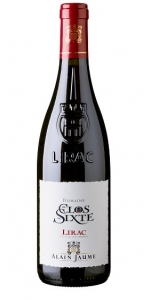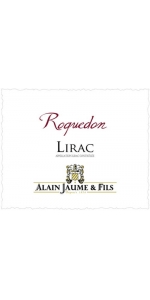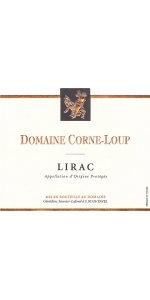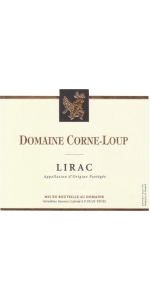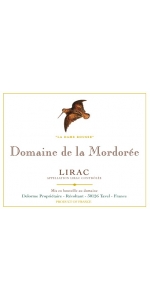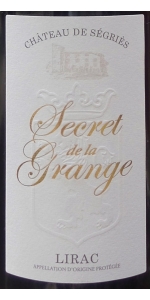Wine from Lirac
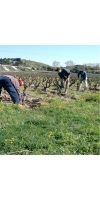
Lirac is a rather substantially sized region of France, located in the Southern Rhone Valley. Lirac is situated to the west of the Rhone Valley. Lirac is most widely known for producing red wine varieties that are full-bodied in addition to a sizeable amount of Rose. Lirac does also produce a minimal quantity of white wine, with those being more weighty varieties of Grenache Blanc, Bourboulenc, and Clairette. Rose from the Lirac region are notably less expensive than the Rose of the nearby Tavel region, however they are an equally, if not better, alternative to the Tavel Rose, as their quality depends more on the juice than on the Prestige of the Tavel name. Lirac and Tavel have come to be fiere competitors for the Rose category. The regions of Lirac and Tavel are only separated by a parish boundary, so both regions benefit from the same climate and excellent drainage with soils consisting of sandstone and limestone. The reds produced by Lirac are the Southern Rhone varieties of Syrah, Grenache, Cinsault, and Mourvedre. These Lirac reds are comparable to the delicate Cotes du Rhone wines. With that success, producers in the Lirac region are also making wine styles similar to Chateauneuf du Pape.
Alain Jaume Domaine du Clos de Sixte Lirac is made from 50% Grenache, 35% Syrah, 15% Mourvedre
An intense red garnet color. On the nose, aromas of red and black ripe fruit (kirsch and wild blackberry). The mouth is full, with aromas of blackcurrant liqueur and spice. Tannins are both harmonious and elegant thanks to the fleshiness of the wine. Hints of licorice and vanilla on the finish, which gives the wine length and complexity.
Soil type LIRAC vineyard is facing Chateauneuf du Pape, opposite side of the Rhône river. As showed by the picture and following geologist George Truc, soils are almost similar in both side. They are marked by the violence wrought by the Rhone river. It consists of a layer of marine molasses of the Miocene period covered by alpine alluvium. The presence of a great number of rounded stones known as "galets" in the earth is evidence of the time when the Rhone, then a torrent, tore fragments of rock from the Alps and deposited them on the plain. LIRAC is one of the up-coming best area from the southern Rhône valley, as it delivers outstanding wines. Winemaking & ageing Traditional wine-making in stainless still vats. Hand sorted bunches, crushed and destemmed grapes. Fermentation temperature : 30°C. 18 days of vatting with pigeages.
Alain Jaume Lirac Rouge Roquedon is made from 60% Grenache, 20% Syrah, 10% Mourvedre, 10% Carignan.
A blend of Grenache, Syrah, Mourvèdre, and Carignan grown on clay and sandy soils, mostly on terraces covered by pebble stones. Lirac is located in front of Chateauneuf du Pape, on the opposite side of the Rhone River.
Lirac Roquedon reveals an intense red garnet color and a nose dominated by a bouquet of red and black ripe fruits (kirsch and wild Blackberry). The mouth is full, with flavors of blackcurrant, liquor and spice. Tannins are both harmonious and elegant. The palate finishes with hints of liquorice and vanilla, which brings length and complexity to the wine.
Traditional wine-making in stainless still vats. Crushed and destemmed grapes. Fermentation temperature : 30°C. 18 days of vatting with pigeages. Ageing mainly in vats and about 10% in oak barrels. Bottling 15 months after the harvest.
Alain Jaume Lirac Rouge Roquedon is made from 60% Grenache, 20% Syrah, 10% Mourvedre, 10% Carignan.
A blend of Grenache, Syrah, Mourvèdre, and Carignan grown on clay and sandy soils, mostly on terraces covered by pebble stones. Lirac is located in front of Chateauneuf du Pape, on the opposite side of the Rhone River.
Lirac Roquedon reveals an intense red garnet color and a nose dominated by a bouquet of red and black ripe fruits (kirsch and wild Blackberry). The mouth is full, with flavors of blackcurrant, liquor and spice. Tannins are both harmonious and elegant. The palate finishes with hints of liquorice and vanilla, which brings length and complexity to the wine.
Traditional wine-making in stainless still vats. Crushed and destemmed grapes. Fermentation temperature : 30°C. 18 days of vatting with pigeages. Ageing mainly in vats and about 10% in oak barrels. Bottling 15 months after the harvest.
Corne Loup Lirac Blanc is made from 40% Grenache Blanc, 35% Viognier and 25% Marsanne
No Oak
The wine boasts a light yellow and brilliant color, fine floral and fruity notes. It is fat, ample and powerful in the mouth with a lot of freshness.
Corne Loup Lirac Rouge is made from 50% Grenache, 40% Syrah and 10% Mourvedre
Dry - less than 4 grams/liter
Color: dark red ruby.
Aromas: red berries, truffles and spices.
Flavors: complex and rich. It shows red and black fruits, with an herbal spice type of aromas coming from the surrounding vegetation (Garrigue).
The average age of the vines is 40 years. (The oldest vines are 80 years old).
The soil is mainly sandy marl and small pebble stones.
Pairs with lamb, duck, turkey, red meat, game and cheese.
Corne Loup Lirac Rouge is made from 50% Grenache, 40% Syrah and 10% Mourvedre
Dry - less than 4 grams/liter
Color: dark red ruby.
Aromas: red berries, truffles and spices.
Flavors: complex and rich. It shows red and black fruits, with an herbal spice type of aromas coming from the surrounding vegetation (Garrigue).
The average age of the vines is 40 years. (The oldest vines are 80 years old).
The soil is mainly sandy marl and small pebble stones.
Pairs with lamb, duck, turkey, red meat, game and cheese.
Mordoree Lirac Rouge Dame Rousse is made from 50% Grenache, 50% Syrah
Color: Deep Red
Nose : Red fruits (raspberry, black-current) and flowers (violet).
Palate : Full, rich and ample, long finish, nice concentration.
Aging potential : 7 to 9 years
Surface : 22 Ha. Yield : 40 Hl./Ha. Vineyard age : 40 years Terroir : Clay / chalk, clay / limestone and sandy with pebble stones. Harvest : by hand Vinification : 100% destemmed , long 30 days maceration with a maximum of 34°C temperature
Pairs well with red meats, grilled meats, game and cheeses.
Mordoree Lirac Rouge Dame Rousse is made from 50% Grenache, 50% Syrah
Color: Deep Red
Nose : Red fruits (raspberry, black-current) and flowers (violet).
Palate : Full, rich and ample, long finish, nice concentration.
Aging potential : 7 to 9 years
Surface : 22 Ha. Yield : 40 Hl./Ha. Vineyard age : 40 years Terroir : Clay / chalk, clay / limestone and sandy with pebble stones. Harvest : by hand Vinification : 100% destemmed , long 30 days maceration with a maximum of 34°C temperature
Pairs well with red meats, grilled meats, game and cheeses.
Review:
A blend of Grenache, Syrah, and Mourvèdre brought up in tank, the 2019 Côtes Du Rhône La Dame Rousse is a big, rich, powerful Côtes du Rhône loaded with notions of smoked black cherries, licorice, scorched earth, and ample minerality. These all carry to a medium to full-bodied Southern Rhône that has terrific purity of fruit, ripe, present tannins, and a great finish. I love its balance and it’s going to deliver ample pleasure over the coming 4-6 years.
-Jeb Dunnuck 90-92 Points
"For this appellation this is a remarkably restrained and rather elegant red with complex red-fruit, baking-spice and terra-cotta aromas. The self-confidently dry tannins build gently and keep the alcohol well in check until right at the end, when you do feel a touch of warmth. A blend of grenache and syrah. From organically grown grapes. Drink or hold."
- James Suckling (February 2022), 92 pts
Mordoree Lirac Rouge Dame Rousse is made from 50% Grenache, 50% Syrah
Color: Deep Red
Nose : Red fruits (raspberry, black-current) and flowers (violet).
Palate : Full, rich and ample, long finish, nice concentration.
Aging potential : 7 to 9 years
Surface : 22 Ha. Yield : 40 Hl./Ha. Vineyard age : 40 years Terroir : Clay / chalk, clay / limestone and sandy with pebble stones. Harvest : by hand Vinification : 100% destemmed , long 30 days maceration with a maximum of 34°C temperature
Pairs well with red meats, grilled meats, game and cheeses.
Review:
"Aromas of spiced cherries, forest berries and sweet spices. Medium body with fine tannins. Layered and textured with a velvety mid-palate. Balanced and harmonious with a focused finish and excellent length. From biodynamically grown grapes with Demeter certification. Drink or hold."
- James Suckling (May 2023), 93 pts
Segries Secret Grange Lirac Rouge is made from 50% Grenache and 50% Syrah.
This is a new wine for Chateau de Segries. 2013 is the first vintage.
The wine is dark and inky.
The aromas are intense and complex. It has fruit flavors of course, Strawberry and Blackberry, but it also have some interesting spice components, garrigue, pepper and licorice.
The finish is long and very pleasant as the tannins are round and well integrated.
La Grange is the name of the parcel where the grapes are grown. The soil is Clay and Limestone.
The average age of the vines is 80 years old.
Classic vinification in temperature controlled tanks. The skin contact maceration lasted 30 days and was completed in cement tanks.
The wine went through MaloLactic fermentation and was bottled without filtration.La Grange is the name of the parcel where the grapes are grown. The soil is Clay and Limestone.
The average age of the vines is 80 years old.
Classic vinification in temperature controlled tanks. The skin contact maceration lasted 30 days and was completed in cement tanks.
The wine went through MaloLactic fermentation and was bottled without filtration.
- back
Selected Options
Regions
Categories
Pricing
Countries
Regions
Grape Types
Wineries
Organic/Free Shipping
W & J Graham's Vintage Port is made from 35% Touriga Nacional, 47% Touriga Franca and various others.
It is with great pleasure that Graham's announces the declaration of the 2000 Vintage, a wine that has been deemed to meet our very exacting standards, and one that shows every promise of living up to the reputation of the very best Vintage ports that the Twentieth Century provided.
This is a landmark wine for Graham's, not only being the first Vintage of a new millennium, but being the first Vintage wine to enjoy the extraordinary results achieved by the new robotic 'lagares' at Malvedos in the inaugural year of our remodelled winery. Significant also has been the decision to include a rather larger proportion of mature Touriga Francesa and Touriga Nacional from Vila Velha, a classic riverside Quinta a short distance downstream from Malvedos, and some spectacular old vine lots from Vale de Malhadas in the Upper Douro. These wines each from family-owned Quintas have been used to reinforce the predominant component from Malvedos and the traditional excellence of the Rio Torto lots from Lages, to produce a rounded and even blend in the hallmark rich Graham style.
Picking began at Malvedos on September 22nd and the last lagar was run off on October 10th, an unusually short and compact Vintage. Fruit arrived in good condition although yields were less than three quarters of a kilogram per vine, and the juice to skin ratio well below normal. 2000 was a year noted for a very low average yield across the Douro, and with the grapes unusually lacking in liquid, the extra amount of treading work required made it an ideal time to employ our new, tireless, mechanical treaders alongside the two original 1890 stone lagares still worked by human feet. It was evident early on in the Vintage from the colour and aroma of the fermenting musts that we were looking at a spectacular year, and after the usual waiting period of sixteen months or so to see how the lots would develop, we have now made our final selection and assembled the final blend.
The blend displays many of the typical Graham aromas of ripe plum and 'esteva' (gum cistus) and is pleasantly smooth on the palate despite its youth. It is full and rich in the mouth with fresh blackberry and red plum notes. Despite the hallmark Graham sweetness in the mouth the finish is long and clean.
As with all Graham Vintages, this is a wine made to last for years and the patience of laying down the wine for fifteen to twenty years will certainly be rewarded.
Review:
Ziata Meteor Vineyard Cabernet Sauvignon is made from 100 percent Cabernet Sauvignon.
Bold and intense, this Cabernet Sauvignon from the Meteor Vineyard in Coombsville is full-bodied and berry-driven, with rich spice undertones and a firm structure.
After 20 years of marketing Napa Valley and its wines, Karen Cakebread launched her own project in 2008 with two major goals in mind: to create beautifully structured wines that reflect the vineyards from which they come, and to be involved in every aspect of making the wines.Karen started ZIATA, named in honor of her mother, Mary Annunziata, in 2008 with three varietals: Cabernet Franc, Sauvignon Blanc and Pinot Noir, which she chose for their food-friendly qualities. She hired Anne Vawter, a protégée of Heidi Barrett, as winemaker and sourced grapes from sustainable sources, working closely with the grape growers through the growing season, knowing that efforts made in the vineyard would create better wine than those manipulated in the cellar. Jennifer Williams : I find winemaking to be both an art and a trade—you learn by doing and working the vineyards, ensuring the fruit is the best it can be long before it’s picked is at least half the work of the winemaker.

